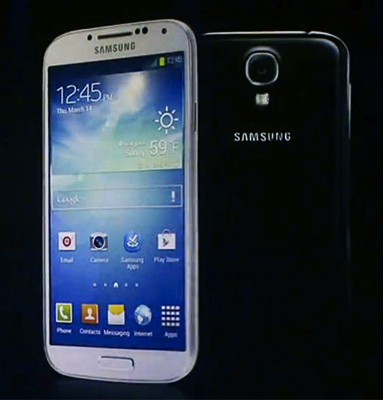MasterCard Worldwide is the latest payment scheme to work with Samsung Electronics, with plans to soon offer its PayPass application for embedded chips in new Samsung NFC phones, NFC Times has learned.
MasterCard, like Visa Inc., sees embedded chips in NFC phones as a promising option for banks and other issuers to introduce mobile payment at the physical point of sale in certain markets, using contactless point of sale terminals that support their contactless brands.
Visa announced a partnership with Samsung in February, saying its payWave application would be preloaded on the embedded secure element in new Samsung NFC devices, which could be personalized over the air. Visa is offering its mobile provisioning service to banks or other payments service providers to personalize the payWave applets on the chip.
That deal was never exclusive, however, and a month later, when Samsung announced its flagship Galaxy S4, the handset maker said the chip would support applications from other payment brands.
Now MasterCard is gearing up to offer PayPass on the chip and could potentially have it in an actual commercial launch before Visa, perhaps by the fourth quarter, NFC Times has learned.
When asked for comment by NFC Times, Ed McLaughlin, chief emerging payments officer at MasterCard, did not deny the ongoing work on the embedded chip between the payment scheme and Samsung.
“MasterCard and Samsung have enjoyed a longstanding relationship, including delivering the world’s first embedded payment application in 2011 with the Samsung Nexus S phone,” he said through a spokesman, noting that, to date, MasterCard has certified 34 smartphones and tablets made by Samsung to run PayPass on SIMs or embedded chips, including the Galaxy S4. That is part of 140 devices certified under MasterCard’s PayPass Ready program.
“Earlier this year, Samsung launched the Galaxy S4, and as Samsung announced the Galaxy S4 will support multiple payment brands for contactless payment stored on the embedded secure element,” McLaughlin added. “We continue to work with Samsung to identify ways to expand our global relationship to drive further innovation.”
The market timing for the launch of the first commercial payment services on the Samsung embedded chips depends on the markets Samsung, along with Visa or MasterCard, are able to crack.
 The embedded chips would enable banks or other service providers to avoid working with mobile operators and the NFC SIM cards they are planning to issue, though both Visa and MasterCard continue to support the SIM option, as well, especially in markets where telcos control most of the distribution channels for phones and have active NFC programs.
The embedded chips would enable banks or other service providers to avoid working with mobile operators and the NFC SIM cards they are planning to issue, though both Visa and MasterCard continue to support the SIM option, as well, especially in markets where telcos control most of the distribution channels for phones and have active NFC programs.
Brad Greene, Visa Inc.’s senior business leader, strategic partnerships and business, mobile, noted at the recent NFC Solutions Summit organized by the Smart Card Alliance and NFC Forum, that while Samsung phones are already shipping from the factory with Visa payWave preloaded, commercial launches of the service is a “different story.”
“What Samsung has decided is they’re going to expose access to (the) secure element in certain markets initially, and they’re really focused primarily on markets where there is a very high percentage of phones that are purchased on the open markets and the MNOs (mobile network operators) really haven’t actively become engaged in offering their own NFC solution,” he said, in response to a question from NFC Times. “It varies so much by country.”
That makes it unlikely that Samsung, along with Visa and MasterCard, would make the U.S. a major target for the embedded payment services, since U.S. telcos subsidize a very large percentage of phones, and telcos making up the Isis joint venture are planning to roll out their NFC-enabled Isis Mobile Wallet more broadly. Isis secures payment applications in its wallet on SIM cards it issues.
It’s possible that Sprint, the No. 3 U.S. telco, which is not part of Isis, could allow Samsung to enable Visa payWave or MasterCard PayPass in the Samsung phones it sells. Sprint has been working on an open model for enabling access to embedded chips in its NFC phones, though launch of that platform is delayed, NFC Times has learned. Second-tier U.S. telcos also could allow Samsung to enable the chip.
But the prime targets for the Samsung chip are expected to be countries where a large share of the phones are sold on the open market and the base of contactless terminals is growing. That would include countries in Eastern Europe, including Russia, and Southeast Asia, say observers.
 Sources also told NFC Times that the UK, Turkey and perhaps later, Italy, will be targeted, since many or most of the phones are sold unsubsidized and these countries have a significant or growing base of contactless POS terminals–though Italy’s contactless infrastructure remains small. Elsewhere, banks in Australia, which has a large base of contactless POS terminals, have also expressed interest in the Samsung embedded chips, NFC Times has learned.
Sources also told NFC Times that the UK, Turkey and perhaps later, Italy, will be targeted, since many or most of the phones are sold unsubsidized and these countries have a significant or growing base of contactless POS terminals–though Italy’s contactless infrastructure remains small. Elsewhere, banks in Australia, which has a large base of contactless POS terminals, have also expressed interest in the Samsung embedded chips, NFC Times has learned.
It’s not clear whether PayPass would be preloaded on the Samsung chips alongside payWave when the phones are shipped or would be downloaded over the air along with personalization data upon a request by the consumer.
As NFC Times earlier reported, embedded chips in new Samsung NFC phones, such as the Galaxy S4, will offer 700 kilobytes of memory for applications, perhaps more, and support GlobalPlatform 2.2 specifications, which would enable service providers and their trusted service managers to more easily manage separate applications on the chip. Samsung is expected to put embedded chips in all or nearly all of its NFC smartphones, just as it did in the Galaxy S III, though few of these chips were used.
Any PayPass service enabled by MasterCard on Samsung embedded chips is expected to support the payment scheme’s MasterPass digital payments platform. Among other things, MasterPass enables banks, merchants and other “partners” to offer their own mobile wallets, according to MasterCard.
In response to a question from NFC Times about whether Visa would continue to enjoy the first-mover advantage for its payWave application on Samsung NFC phones, over MasterCard, Greene responded: “You’ll have to ask Samsung.”
Samsung was not immediately available for comment.

